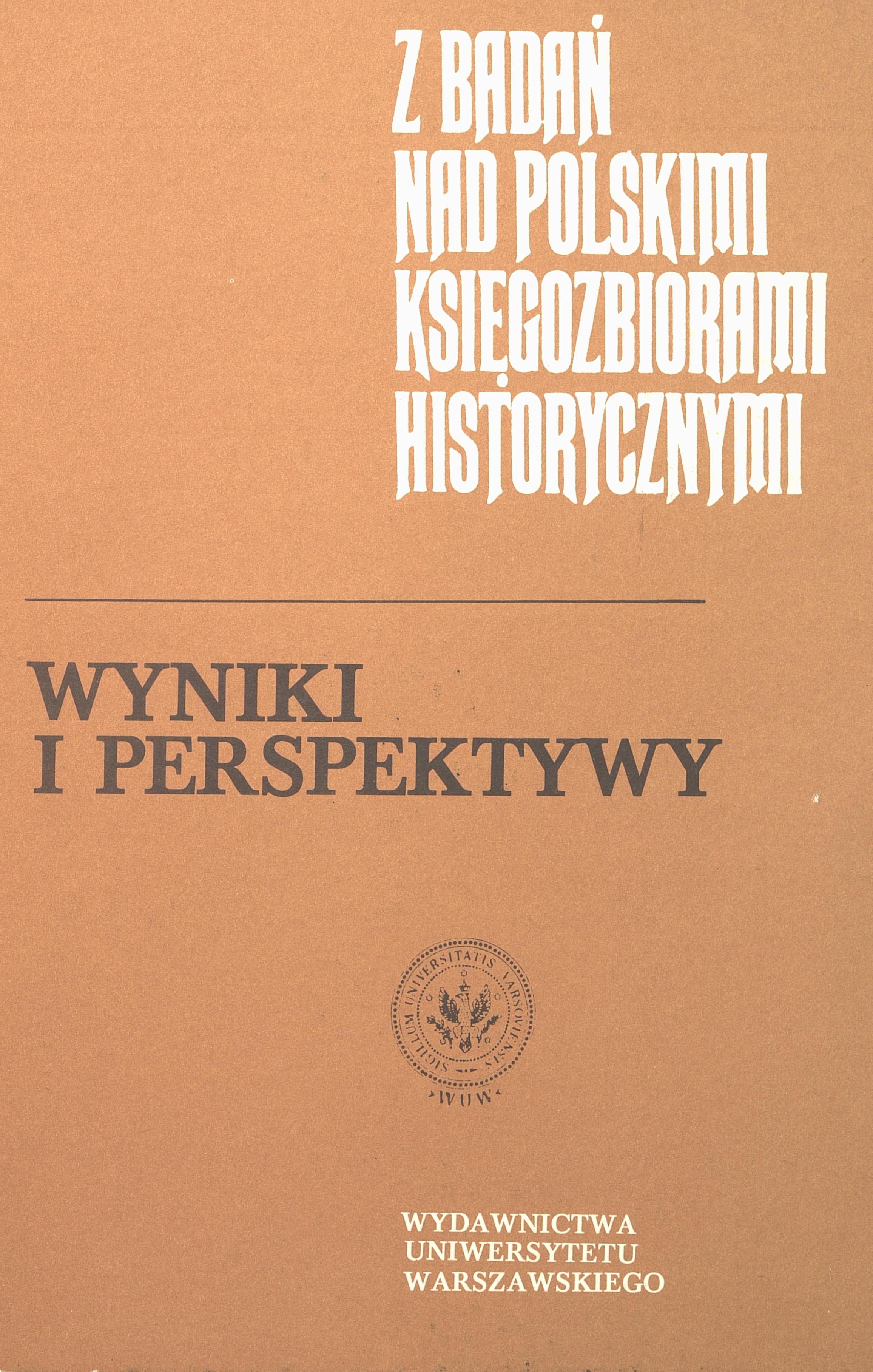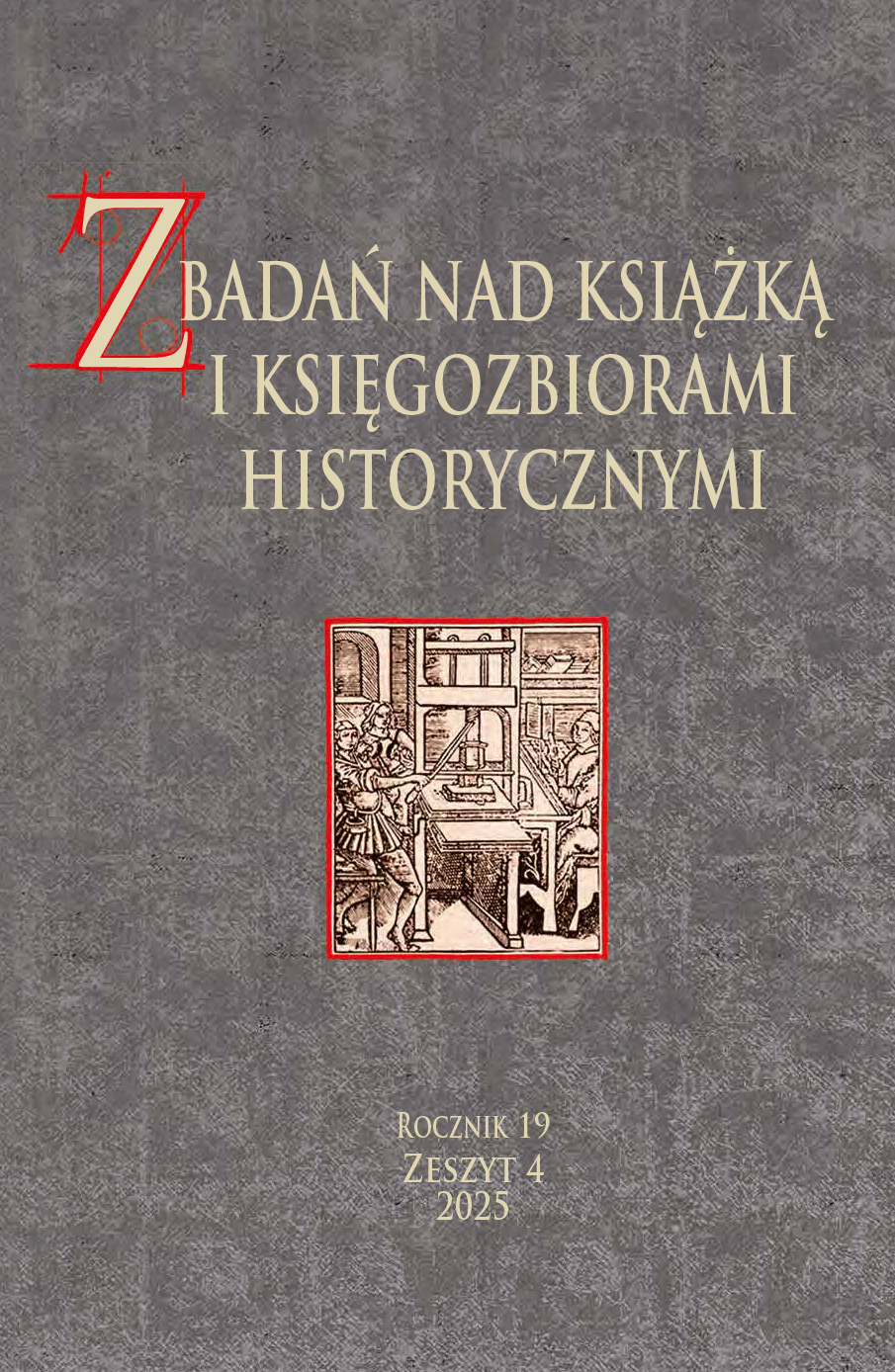Pre-1801 printed books from the Potockis of Tulczyn collection in the Nicolaus Copernicus University library in Toruń
DOI:
https://doi.org/10.33077/uw.25448730.zbkh.1992.434Keywords:
the Tulczyn Library, book collection of Stanisław Szczęsny Potocki, provenance studies, old prints in the University Library in Toruń, family libraries.Abstract
During the 1987-88 clean-up in the library stacks 113 pre-1801 printed books bearing the Potockis of Tulczyn ownership marks were found. They had belonged to Stanisław Szczęsny Potocki (1752-1805), his second wife Józefa Amelia née Mniszech (1752-1798), his third wife Zofia primo voto Witte (1760-1822), famous of her beauty, and their heirs: Jarosław Potocki (1784-1838), marshall of the court of Russia, honorary commander of the Order of Malta, and owner of the Sitkowce Commandery Library (named from the village Sitkowce in Podolia), as well as Franciszek Salezy Potocki (1877-1949), owner of a library in Peczara manor in Podolia. All those books were purchased by the Nicolaus Copernicus University library due to the efforts of professor Ludwik Kolankowski (1882-1956), its director. He had on mind the university's research and reference needs, and while he was probably not indifferent to provenance, it was not the most important element to him.
Among the books in question there are books of great and incommensurable value, as „Atlas Beneventana” (1508) and the first edition of Maciej of Miechów chronicle (1519). Beside them we can identify writings by M.Kromer, J.Herburt, Z.Herberstein, A.Gwagnin, S.Sarnicki, W.Goślicki, W.Kochowski, A.M.Fredro, Ł.Opaliński, T.Treter, S.Starowolski, A.F.Modrzewski, numerous constitutions and legal collections, legal works by Dogiel, political treatises pertaining to the 18th-century Poland, literary work by Jan Kochanowski and Stanisław Herakliusz Lubomirski, as well as several luxury French publications and histories of Great Britain. Eight items were printed in the 16th century, 44 in the 17th, and 61 in the 18th.
The existence of this provenance group may help stress once again Ludwik Kolankowski's merits for the university and we hope this attempt at a brief description will in the future facilitate inquiry into this important aristocratic library.







